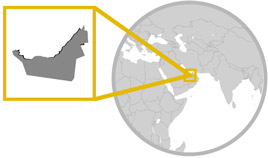Money
The Omani Riyal, given the universal currency code OMR can be divided down into 1000 Baisa. 1 Riyal is equal to $2.60 or £1.56.
Omani Rial coins are available in 5, 10, 25, 50, 100, 250 (1/4 Rial) and 500 (1/2 Riyal) Baisa amounts.
Banknotes are issued in 100 and 500 (1/2 Rial) Baisa amounts as well as 1, 5, 10, 20 and 50 Rial amounts.
Economy
Oman’s economy is mainly based in oil exportation but the country also makes a fair amount of its money through natural gas reserves as well as seafood exports and the production of cement, steel, copper, optic fibre, chemicals and construction works.
The country is currently experiencing a growth at a rate of 5.0% annual GDP with the inflation rate at 3.5%. Around 15% of the population is unemployed. Today the country’s stock market capitalization is valued at around $15.5 Trillion and is one of very few countries with little to no national debt.
Banking
Banking works much the same way that it does in the west and over the past decade Oman has slowly set up more ATMs, especially in the capital city of Muscat, account types are more simplistic and savings accounts are not so accessible.
Current Accounts are used nationwide for basic day-to-day activity and many national and international banks utilize these account types the most frequently. They’re also incredibly useful due to the ease of converting currencies between OMR, AED, EUR, GBP and USD.
Taxes
Within Oman there is no income tax or any taxation in regards to residency but there are taxes applied on income to be used as contributions to the social security fund for benefits and pensions. These taxes are applied at a rate of 6.5% while employers have to pay an additional 9.5% as well as a further 1% for industrial illness and injury benefits schemes. All people between the ages of 15 and 59 must pay these taxes. It’s important to note that expats may still be subject to taxation from their home country, even while living and working in Oman.
There is no VAT on any non-imported product but products that have been imported may have a number of duty fees to be paid. Additionally when purchasing real estate a stamp duty tax is applied at 3% of the sale price.

